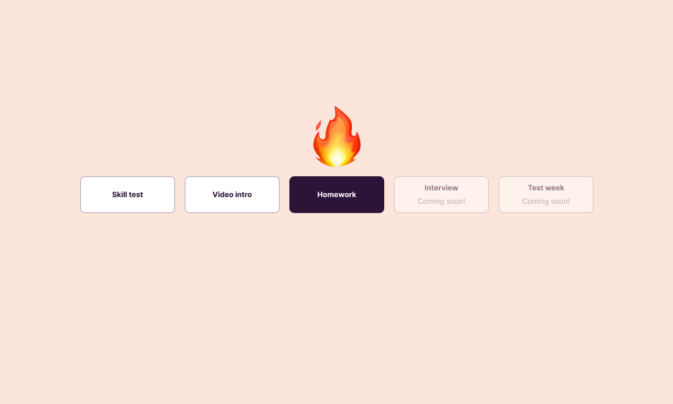Thinking about an ‘Emotional Intelligence Test’ might conjure up images of scientists in white coats, but it isn’t as scientific as we tend to imagine.
As employers, we all want to hire people who are smart and capable. But sometimes, that’s not all it takes to succeed in work life. Sometimes employees need to be able to read a room, have empathy, anticipate problems before they happen, stay calm under pressure, and do all of that without coming across as bossy or “too emotional.”
In short, we want them to be emotionally intelligent.
In this article, we will look back on the research on Emotional Intelligence, recap how it correlates with job success, review what types of tests exist to assess EI as well as discuss what other methods there are to evaluate candidates‘ emotional intelligence during recruitment.
A quick refresher on EI – what is it exactly?
The concept of Emotional Intelligence gained worldwide recognition and popularity following a pivotal book by Daniel Goleman published in 1995. In his research, Goleman links the ability to recognize and regulate emotions with leadership skills and overall success in life.
A common way to define Emotional intelligence (EI) is as the ability to recognize, manage and understand own emotions. Additionally, it involves understanding how others feel, how to express emotions, and how to control them.
Emotional Intelligence components
Emotional Intelligence is usually broken down into four attributes:
- Self-awareness involves being able to understand your own emotions, recognize your strengths and weaknesses, as well as understand what motivates and drives you.
- Self-management refers to thinking before acting; it helps keep negative emotions and immediate reactions in check, so they don’t take over and don’t control what happens around you.
- Social awareness means being aware of the feelings or actions of others around you. It enables us to empathise and establish trust with people by understanding what motivates them in different situations.
- Relationship management refers to the previous point but goes further than that – it allows us to take responsibility for ourselves beyond simply not losing our cool when things get tough at work.
To sum up, Emotional intelligence (EI) is a person’s ability to accurately perceive, understand and manage their own emotions, and to utilize emotional signals from those around them to guide their responses and behavior.
Why everyone wants to hire emotionally intelligent people?
We now established that Emotional intelligence is the ability to understand how you and others are feeling, recognize why those feelings exist and use that understanding to make better decisions.
In a work setting, it, therefore, means being able to positively handle day-to-day situations that arise. In his 1995 book, Daniel Goleman posits that Emotional Intelligence is, in fact, more important than IQ for success at work and in life overall.
Now, over a quarter of the century later, research shows that most hiring managers in the US agree with that proposition and do, in fact, see EQ, the emotional intelligence quotient, as more important to hiring than IQ.

It’s an established fact that emotional intelligence plays an important role in your job, your relationships with colleagues, and your success at work in general. Moreover, it is one of the key traits of successful leaders.
How can high emotional intelligence lead to success in your career?
People with higher emotional intelligence skills tend to be happier in their life and build relationships with those around them easier. Therefore, they tend to be more successful at work because high emotional intelligence helps them handle stressful situations easier.
This can make all the difference when starting a new project, taking on more responsibility, or running into issues at work. Employees with high emotional intelligence are less likely to get overwhelmed by negative feelings, show empathy towards others, and focus on what needs to be done now instead of worrying about problems.
According to research by Harvard Business Review, people with high emotional intelligence make better leaders.
As a leader, one needs the skills to connect with people and be able to understand and relate to the team to encourage team members to perform at their best. High Emotional Intelligence helps you do just that.
Being able to self-regulate emotions and show empathy to others translates into a calm and positive working atmosphere in the team. If team members are feeling sad or angry, a good leader can support them and work through their feelings together rather than avoid or ignore any negative emotions like an emotionally unintelligent manager could do.
Emotional Intelligence correlates with Soft Skills
Considering that one of the elements defining Emotional Intelligence is about building and maintaining relationships with others, it is clear that emotionally intelligent people tend to have a good grasp of key interpersonal skills, also referred to as ‘Soft Skills’, such as:
- Communication
- Conflict resolution
- Empathy
- Teamwork
This means that assessing these qualities during recruitment can help you understand candidates’ level of emotional intelligence.
How to measure Emotional Intelligence when hiring?
Some of the common ways to measure emotional intelligence are through self-report questionnaires, peer ratings, and 360-degree feedback.
Not all of these would be viable when recruiting, so hiring managers usually rely on one of the two types of emotional intelligence assessments.
What types of emotional intelligence tests are available when hiring?
Self-reporting
This type of emotional intelligence test relies on self-reported answers, usually in the form of agreeing to a number of statements. One such assessment, Schutte Self-Report Emotional Intelligence Test (SSEIT), developed in 1998 by Schutte, contains 33 statements and a 1-to-5 scale (from Strongly Disagree to Strongly Agree) to score responses. Statement examples are:
I know when to speak about my personal problems to others
I know why my emotions change
One of the main criticisms of a self-reporting quiz is that it may not be accurate if people choose not to give their trustworthy and honest responses, fearing that it might harm their chances of getting the job.
Instead, some may choose to give ‘expected’ responses. This would mean that employers could potentially hire someone who is not as capable for the position as initially believed.
Ability EI test
Another category of emotional intelligence tests is the so-called Ability tests. These involve people responding to situations and then assessing their skills.
Mayer-Salovey-Caruso Emotional Intelligence Test (MSCEIT) is a popular ability-based test used to measure Emotional Intelligence. It is designed to measure the four branches of EI as defined in the Mayer and Salovey EI model:
- perception/expression of emotion
- use of emotion to facilitate thinking
- understanding of emotion
- management of emotion in oneself and others.
According to Mayer, Salovey, and Caruso’s research, emotional intelligence is a set of mental skills that are intercorrelated. They relate to other types of intelligence and, what’s important, can be trained and developed like other skills.
MSCEIT is a task-based test. It presents people with scenarios involving photographs of faces expressing certain emotions or descriptions of emotionally charged situations. Respondents need to identify the emotion that is being demonstrated or suggest an effective resolution to emotionally charged situations.

The final score is composed of individual branch scores corresponding to four EI pillars and aggregated into two main areas:
- Experiential EIQ, which measures skills to recognize and name emotions,
- and Strategic EIQ score, which represents how one can control and manage emotions to mediate their effect on relationships.

Understanding the benefits and flaws of the emotional intelligence test
Like any skills assessment, an emotional intelligence test is not a perfect solution to hiring the best people. It is simply a tool to help you in your hiring process that can sometimes be biased or inaccurate.
Before you decide that an EI test is the right fit for your hiring process, evaluate both the benefits and flaws of using it.
While knowing the EQ score of candidates may give you additional insights into their skills and help evaluate cultural fit, the results may be biased, especially if using a self-reporting assessment. At the same time, an extensive ability-based appraisal may be lengthy and tricky to fit into your hiring process.
A simpler and faster way to test emotional intelligence in candidates
When hiring, the best way to determine whether a candidate has strong emotional intelligence skills is by assessing relevant soft skills and then asking them follow-up questions about certain work-related situations, reactions, and interactions with others.
It is important for the interviewers to consider the specifics of the role to prepare the most relevant tests and questions.
For instance, a customer support representative may need to manage frustration when receiving customer complaints.
For technical roles, it may be more important to remain calm and in control when facing a deadline and working on resolving software bugs.
Questions to assess one’s EI skills are always open-ended and encourage further discussion. Here are some examples that you might start with when planning an interview:
Emotional Intelligence questions to help assess the self-awareness in candidates
These questions will help you gain insights into candidates’ personalities and assess potential cultural fit.
- How do you usually handle conflict?
- Who inspires you and why?
- What drives you?
- What helps you stay motivated at work?
- What are some of your strengths and weaknesses?
Scenario-based Emotional Intelligence questions
These can help understand candidates’ typical behaviors in various work situations.
- Describe a stressful situation at work. How did you feel, and what did you do?
- How would you handle communication with a very frustrated customer?
- Imagine you just received negative feedback on your job performance. How would you handle the situation?
- Describe when you made a mistake at work. How did you feel, and how did you resolve the situation?
- What would you do if you noticed a mistake that your teammate made?
Whether or not your company already focuses on candidates’ EI skills as part of its hiring process, keep in mind why it’s important for employers to focus not just on what we can see but also on what lies beneath our surface behaviors.
Wrapping up
Empathy and understanding of others’ emotions (in other words: being emotionally intelligent) are important for building successful relationships.
Emotional Intelligence is a powerful skill for success both in personal life and professional career. It will help one navigate stressful situations and build strong relationships with other people.
But remember – when used in recruiting, Emotional Intelligence tests aren’t always reliable or accurate. They mostly rely on self-reporting measures instead of actual observation. Perhaps in some time, we will have a quick and accurate way to measure people’s EI.
Until then, the best tip is to rely on relevant interview questions to assess candidates’ emotional intelligence skills when hiring.
Kate is a Digital Marketing Manager. Working remotely for over 10 years, she is curious about new work trends and believes that making recruitment skills-based is a win-win for companies and candidates.


